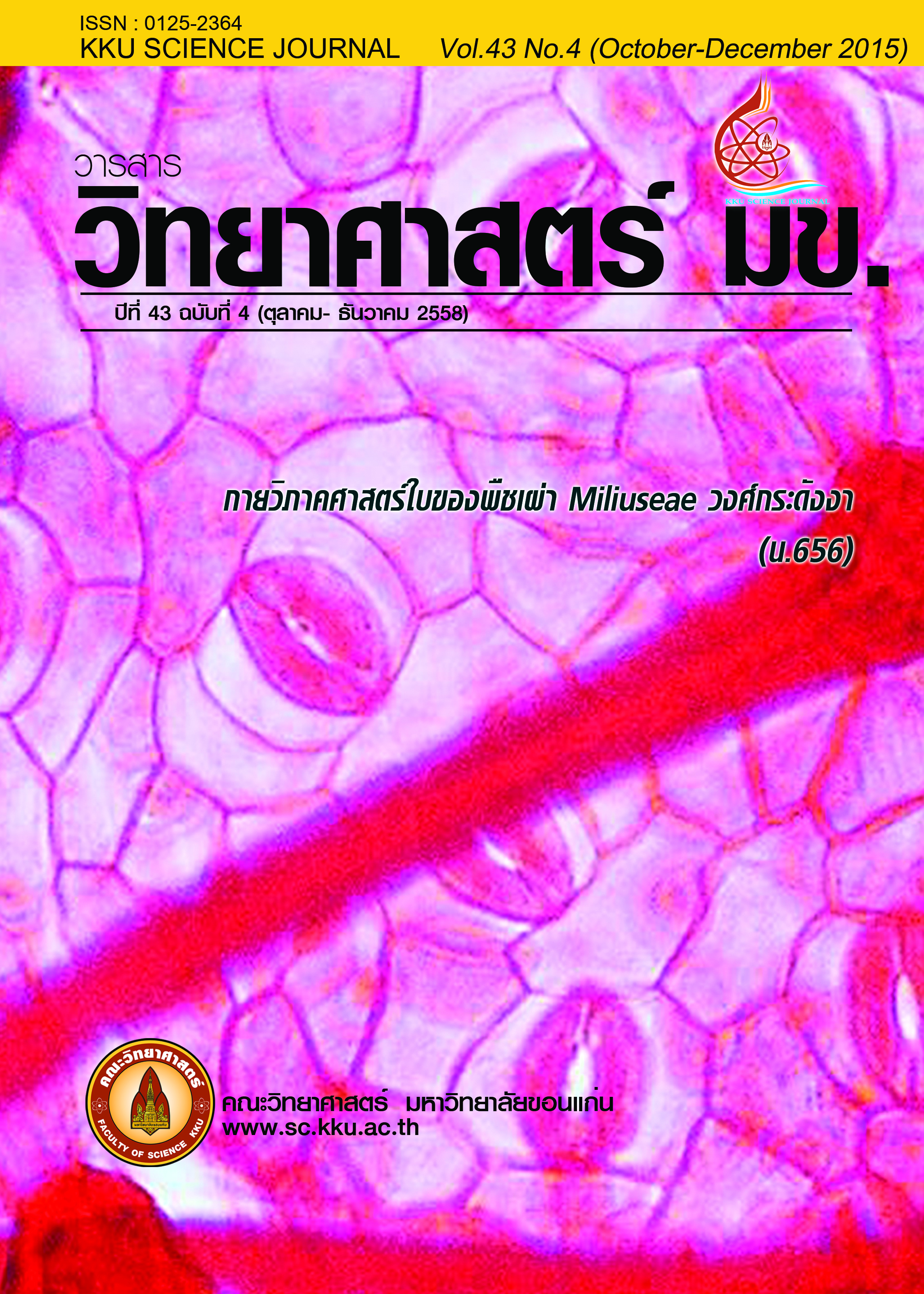Properties of Phenoloxidase and Its Response to Challenging by White Spot Syndrome Virus in Litopenaeus vannamei
Main Article Content
Abstract
Phenoloxidase, an active form of prophenoloxidase (proPO), is a key enzyme of crustaceans including shrimp that plays an important role in defense mechanism against pathogenic infection. In this study, phenoloxidase from the hemocytes of the Pacific white shrimp Litopenaeus vannamei was partially purified by chromatography on Q-Sepharose column and subsequently by preparative polyacrylamide gel electrophoresis (PAGE). Partially purified enzyme had a molecular mass of 457 kDa determined by native PAGE. It had hyperbolar kinetics for L-DOPA (3,4-dihydroxyphenyl-L-alanine) with KM and Vmax values of 10 mM and 0.014
A4 90/min, respectively. It also showed substrate specificity to dopamine, catechol and pyrogallol except tyrosine. Partially purified enzyme could be activated by trypsin, laminarin, lipopolysaccharide and sodium dodecyl sulfate. In order to study the response of this enzyme towards pathogens, white shrimp were challenged with white spot syndrome virus (WSSV). After WSSV injection, phenoloxidase activities in the hemocytes increased continuously to reach the maximum at 18 hour post-injection and then declined. In contrast, no significant differences of phenoloxidase activities were detected in the control shrimp which were injected with 0.85% NaCl in parallel. These results indicate that phenoloxidase is inducible and may be involved in a shrimp immune response against pathogenic viruses.
Article Details

This work is licensed under a Creative Commons Attribution-NonCommercial-NoDerivatives 4.0 International License.


